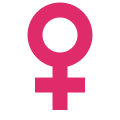This article has multiple issues. Please help improve it or discuss these issues on the talk page . (Learn how and when to remove these messages)
|
 Two female Sega music dancers (center and right) from Mauritius. | |
| General statistics | |
|---|---|
| Maternal mortality (per 100,000) | 53 (2020) |
| Women in parliament | 20% (2020) |
| Women over 25 with secondary education | 45.2% (2010) |
| Women in labour force | 50% (2018) |
| Gender Inequality Index [1] | |
| Value | 0.347 (2021) |
| Rank | 82nd out of 191 |
| Global Gender Gap Index [2] | |
| Value | 0.679 (2022) |
| Rank | 105th out of 146 |
| Part of a series on |
| Women in society |
|---|
 |
Women in Mauritius refers to the social demographic of women in Mauritius. Women's role in Mauritian society [3] changed throughout the 20th century. Historically, Mauritian culture maintained patriarchal power structures, in domains inclusive of family and work life. Women's contribution in the workforce increased due to the creation of 'Export Processing Zone', by the Mauritian Government. [4] This shift resulted in a surge in 'dual-earner' and working single-mother households. [5]
Contents
- Parliament
- Events
- Indices of Development
- Economic
- Education
- Gender
- See Also
- References
- External links
Furthermore, in 2008, Mauritius established the Employment Rights Act. The Act forbids discrimination within the workplace and stipulates equal remuneration for work of equal value. [6] Both females and males, regardless of their marital status, have the legal right to choose their own profession, in Civil Code and under The Act. [7]